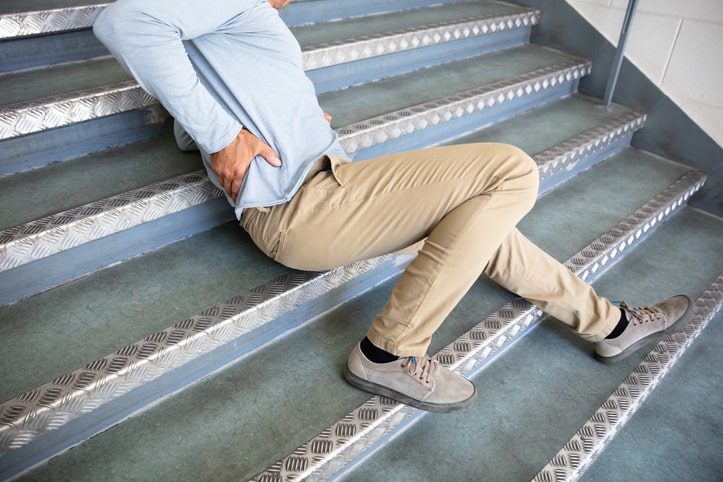Our David W. Martin Accident and Injury Lawyers in South Carolina know that slip-and-fall accidents cause over eight million emergency room visits annually in the United States.
Unfortunately, some of these incidents result in severe injuries that could have been prevented if the property owner, operator, or manager had exhibited the duty of care they owed to the visitor.
If you have been injured in a slip and fall accident in South Carolina, there are several vital elements to pursuing a successful claim.
Here, we discuss the requirements and how we can help.

What Evidence Do I Need to Pursue a Successful South Carolina Slip-and-Fall Claim?
The first element of a successful slip and fall claim in South Carolina requires proving the property owner or occupier owed a duty of care to the injured person. The visitor’s legal status often determines this duty and whether the injured person was legally on the property as an invitee or licensee.
The property owner is expected to take reasonable steps to inspect, repair, or warn about potential hazards.
Proving that the property owner knew or should have known about the dangerous condition is crucial. Actual knowledge means they were aware of the hazard, while constructive knowledge implies that they should have known through reasonable inspections.
You must show that the property owner or occupier was negligent to succeed in a slip-and-fall claim. This means demonstrating that they failed to maintain the property in a safe condition or failed to warn visitors of potential hazards.
You must establish a direct link between the property owner’s negligence and your injuries. Demonstrating that the hazardous condition directly caused the slip-and-fall is essential.
Simply put, imagine you are shopping in a supermarket in South Carolina. While walking down one of the aisles, you suddenly slip and fall. The cause of the slip is a spilled liquid detergent that was not cleaned up or marked with a warning sign. As a result of the fall, you sustain injuries, including a broken wrist and a sprained ankle.
In this example:
- The supermarket owes a duty of care to its customers to maintain a safe environment.
- The supermarket may be considered negligent for failing to promptly clean up the spilled detergent or failing to place a warning sign to alert customers of the hazard.
- If the spill had been present for a sufficient amount of time, the supermarket might be found to have constructive knowledge, as they should have discovered and addressed it during regular inspections.
- The hazardous condition (spilled detergent) directly led to the slip-and-fall and subsequent injuries.
- The supermarket could be held responsible for not taking reasonable steps to maintain a safe shopping environment, like promptly cleaning up spills.
Gathering evidence is crucial to proving your claim. This may include photographs of the accident scene, witness statements, maintenance records, and other relevant documentation.
Once you have notified the appropriate parties that an accident with injuries occurred and collected the necessary evidence, seek medical attention immediately. Providing medical records and documentation of your injuries is essential to establishing the extent of your damages.
Medical records are essential components of a successful slip-and-fall claim. These documents will establish the extent of your injuries and demonstrate the medical expenses incurred.
Once you can, contact our experienced South Carolina premises liability attorney for help.
Contact Our Skilled South Carolina Slip-and-Fall Attorneys Today
If you have been injured in a slip and fall incident in South Carolina, contact our David W. Martin Accident & Injury Lawyers today by calling (803)-258-6199 to learn more about your legal rights and options to hold the negligent party liable for your complete recovery needs.
We provide free consultations for all personal injury cases in South Carolina and never charge any legal fees unless we deliver a positive outcome for your unique case.





